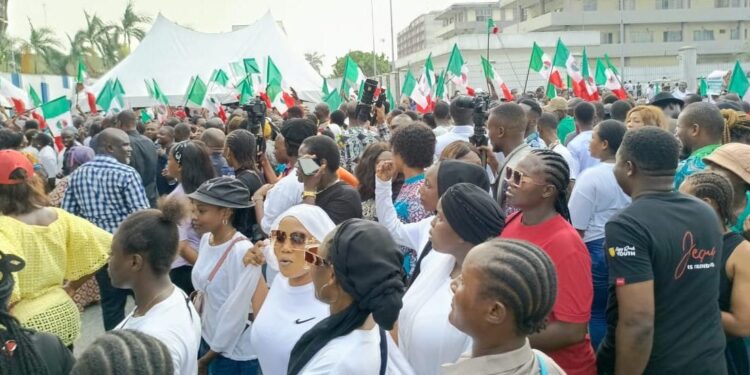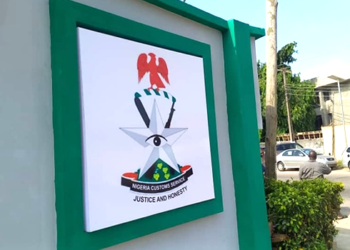A protest that began peacefully in Dutsen Alhaji, a suburb of Nigeria’s Federal Capital Territory, Abuja, escalated into chaos as it was overtaken by hoodlums and agitated youths. Demonstrators set up bonfires and erected barricades, leading to widespread disorder and concern among residents.
The protest, initially aimed to draw attention to longstanding issues including inadequate infrastructure, lack of basic amenities, and perceived governmental neglect. Participants initially gathered peacefully, carrying placards and chanting slogans to express their grievances.
However, what started as a peaceful assembly soon degenerated into violence. Reports indicate that a group of hoodlums infiltrated the protest, inciting unrest and provoking clashes with law enforcement. Eyewitnesses described scenes of chaos as the demonstrators, some of whom were youths from the local area, began to set up bonfires and construct barricades along major roads, effectively halting traffic and creating significant disruptions.
Law enforcementagencies, including the police, were dispatched to the scene in an attempt to restore order. The law enforcement officers initially attempted to disperse the crowd through non-violent means, including negotiations with protest leaders. However, as the situation intensified, they were compelled to resort to stronger measures, deploying tear gas and making several arrests.
Earlier the Nigeria Police spokesperson, Assistant Commissioner of Police Olumuyiwa Adejobi, stated, “The police were committed to ensuring the safety and security of all citizens. We have taken necessary actions to regain control and ensure public safety.”
The sudden shift from peaceful protest to violent demonstration has left many residents of Dutsen Alhaji in shock and fear. Local businesses were forced to close, and public transportation was severely disrupted. The community is now grappling with the aftermath, including property damage and a heightened sense of insecurity.
Maryann Maaji, a shop owner in the area, recounted her experience: “We support peaceful protests and the right to voice grievances, but the violence was terrifying. We had to close our shops and seek shelter. It’s heartbreaking to see our community in such turmoil.”
The incident in Dutsen Alhaji underscores the broader challenges facing Nigeria, where peaceful protests frequently risk being hijacked by violent elements. This pattern not only undermines the legitimate concerns of the protesters but also poses significant challenges for law enforcement and governance.
As calm is gradually restored to Dutsen Alhaji, community leaders are advocating for renewed dialogue with the government. They emphasize the need for constructive engagement to ensure that the grievances of the people are heard and addressed without resorting to violence.
A youth leader from the area, stated, “Our community deserves better, and we will continue to push for our rights through peaceful means. We urge the government to listen to us and take concrete steps to improve our living conditions.”
The events in Dutsen Alhaji serve as a potent reminder of the delicate balance between the right to protest and the need to maintain public order. As Nigeria navigates its complex socio-political landscape, the importance of addressing underlying issues and fostering open, peaceful dialogue cannot be overstated.











